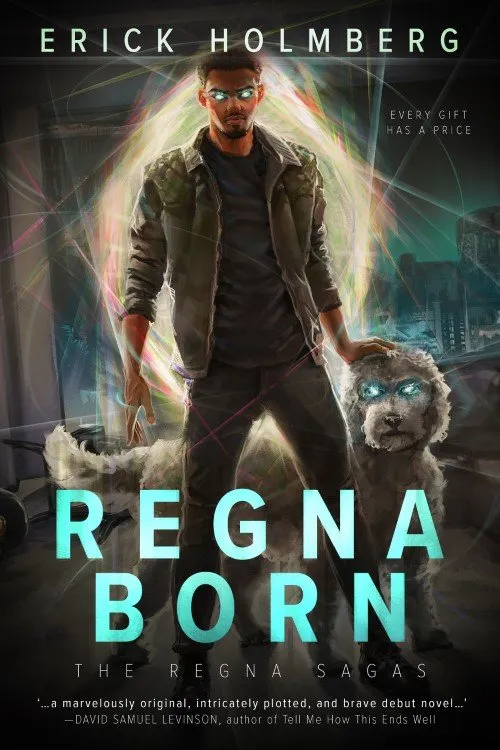Diverse Representation in Fiction - Erick Holmberg
12 Aug 2024You’re sixteen years old, and you’re reading Interview With A Vampire when something in the back of your mind says, “I think they might be gay.”
The idea that my high school might assign me a book that included even a tertiary gay character was ridiculous, at least then. All I can say is that I hope that’s changed because the feeling I had turning the pages of Interview has never left me.
Thoughts like, “You’re not alone; you belong,” and “There are others like you” flooded my mind like a sunburst of dopamine. That means something when your high school graduation class has a hundred students.
The idea that places like Florida would take us backward and ironically ban books like Fahrenheit 451 has to be taken seriously. The fact that we’re policing books in school and not guns is, at least to me, a crazy concept.
Reflecting back, I ask myself how many books I read that included Black, Asian, or Hispanic characters. The list goes on, and the answer is none. When I say none, we read To Kill A Mockingbird and Huckleberry Finn, but you see the problem. I was the main character in my life, so why couldn’t I find a gay protagonist? Is Rubyfruit Jungle or Reflections of a Rock Lobster assigned in high schools? If they’re not, they should be.
After that thrilling experience, I was determined to find not a crumb of representation but a whole meal. And I found it in a bookstore, not in my school library. Let’s think about that for a minute: those whose mission was to educate had nothing, but those whose mission was to earn a profit did.
While the search didn’t prove fruitless, it didn’t turn up much, especially in my chosen genre, fantasy. It’s a human need to want to see oneself, and isn’t a book a mirror? If it is, then it should reflect all of us in our collective diversity.
I’ve always felt, although I have no proof of this, that when we read, there is a part of our brain that doesn’t know it’s not real. That there is a sliver of us that believes what we’re experiencing between the pages is actually happening. I think that's why studies show that readers are more empathetic and score higher in ‘emotional intelligence’ categories. We’ve met these characters as real people and shared their experiences. The power of representation can’t be underestimated.
Finding diverse characters in fantasy continued to be a challenge, so when I decided to sit down and write my debut urban fantasy novel, Regan Born, there was going to be a diverse cast. After all, that’s my real life; why shouldn’t I see it in a book? I work with colleagues from India, China, Europe, and Latin America. How can that rich real-life experience not be reflected in fiction?
Diversity means many things. It’s certainly more than just race or sexual orientation but culture, ability, gender, and so much more.
I’m a jazz fan, and a friend who sadly recently passed away was a jazz singer. His name was John Minnock, and he introduced me to giants like National Endowment for the Arts Jazz Master David Liebman and Academy Award winner David Shire. John asked me, “Do you see any gay or queer lyrics in jazz?” I said no, and he said, “Well, I guess you’ll have to write them.”
His legacy is a proud one, and I’m proud that these songs are in the world because whoever we are, we’re everywhere and deserve to be seen.

You can order Regna Born using this link.
About Erick Holmberg
Erick grew up in Lunenburg, Massachusetts, where it was impossible to find fantasy novels with diverse characters and points of view. Erick lives in Boston with his husband and their dog, a giant Bernadoodle named Niko, and writes the books he always wanted to read and the lyrics he always wanted to hear. When he’s not writing, walking the dog, or making pasta, Erick is a vice president at an asset management firm. Regna Born is Erick’s debut novel with NineStar Publishing.
